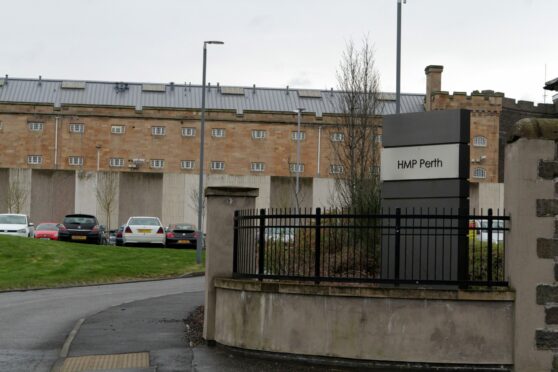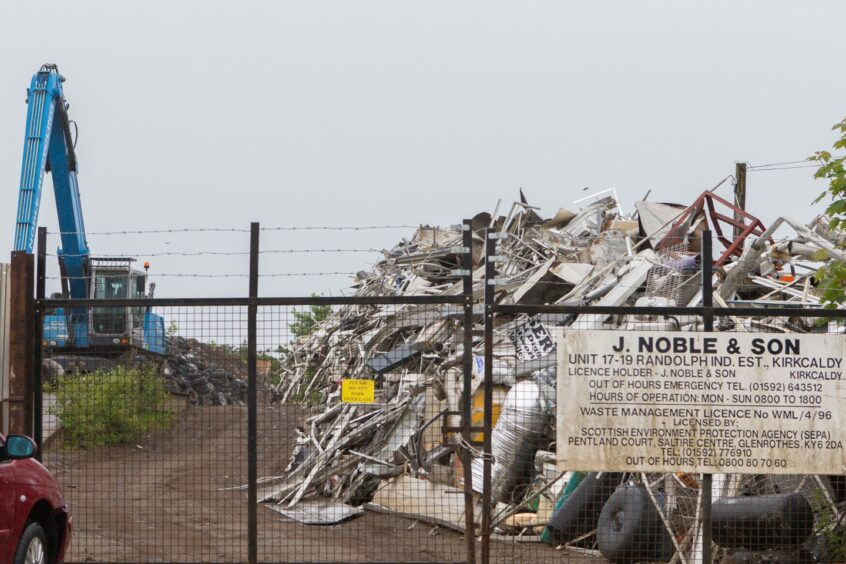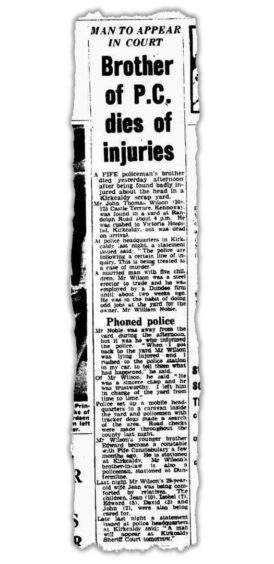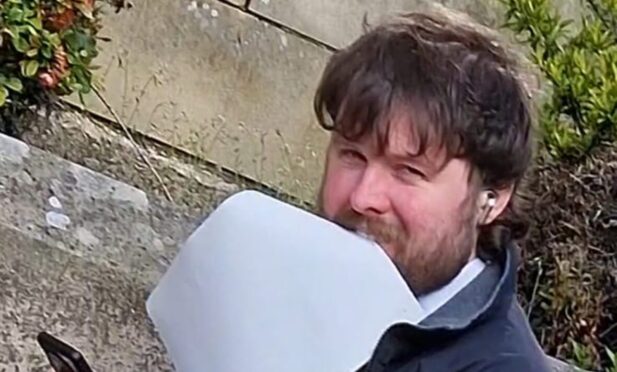A dying murderer was turned away from 42 care homes and spent a year in a Tayside hospital chained to a prison guard.
Thomas Campbell was jailed for life in 1967 for killing a father-of-five at a Kirkcaldy scrapyard.
He was transferred from Perth Prison to the town’s hospital in the final months of his life after developing dementia and bladder cancer.
A sheriff ruled that Campbell’s death in November 2019, at the age of 84, was linked to his heavy smoking habit and that he died of natural causes.
But he expressed concern at the way the killer had been treated towards the end of his life.
Hospital discharge not possible
Campbell was admitted to Perth Royal infirmary in October 2018 for palliative care following a decline in his health.
Around that time he was given a life-expectancy prognosis of just three months.
But after 42 nursing homes declined to take him in due to the risk to other residents, he remained in hospital.
From his admission until September the following year he remained in handcuffs with three prison officers in attendance.
After that date he was only handcuffed following incidents of aggression.
Officials carrying out inspections queried the use of handcuffs but were told they were needed as Campbell was “violent.”
Broke prison officer’s hand
In a judgement handed down this month, Sheriff William Wood said he could not criticise NHS Tayside of the Scottish Prison Service for their management of Campbell’s health issues.
However, he said had Campbell been allowed trips into the hospital grounds sooner he might not have needed to remain in handcuffs for so long.
Sheriff Wood noted that Campbell had been violent within the hospital, detailing 10 notable incidents – including one in which a prison officer sustained a broken hand – between October 2018 and January 2019.
He said: “According to the evidence, Mr Campbell spent almost a year (that is, from his admission up until on or about September 2, 2019) handcuffed to a PCO (prison custody officer).
“I note that, although Mr Campbell was chronically unwell both physically and mentally (due to his dementia), he managed to retain some of the violent disposition that led him to commit a savage murder and numerous incidents of violence both within prison and when on parole, even in the later stages of his life.
“He had assaulted staff on numerous occasions in the hospital and that it would appear that his continued restraint was more of a continued deterrent rather than being aimed at preventing the assessed risk that he would “kick out”.”
Visits to hospital grounds
Sheriff Wood noted that trips into the hospital grounds has a “marked improvement” on Campbell’s behaviour.
He questioned whether the assessment needed prior to these trips could have been carried out at an earlier date.
The sheriff added: “In light of Mr Campbell’s conduct in hospital – assaulting various PCOs at various times – I do not doubt that his restraint would have appeared justified but, as I have suggested above, perhaps an earlier, more holistic assessment of his needs at an earlier stage might have improved his demeanour to the extent where handcuffs were no longer considered necessary.”
He also noted that there was a lack of clarity over whether Fife or Perth and Kinross Council was responsible for finding Campbell suitable accommodation, adding that this must have “led to considerable frustration for both prison and hospital management.”
Guilty of ‘vicious and brutal’ murder
Originally from Dysart, Campbell was jailed at the High Court in Dundee for killing John Thomas Wilson at Noble’s scrapyard.
Mr Wilson, the brother of a policeman, was found with severe head injuries on August 18 that year.
At the time of his death the 30-year-old was acting as an odd-job man for scrapyard owner William Noble.
The incident resulted in a man-hunt involving road blocks and tracker dogs.
At his trial, Campbell claimed they had gotten into a physical fight after Mr Wilson attacked him as he searched for a battery in a shed.
He said he did not know Mr Wilson had died until he was charged with murder.
Sentencing Campbell, Lord Avondale told the then-32-year-old: “You have been found unanimously guilty by the jury – and to my mind properly – of a vicious and brutal murder.
“I have only one sentence at my disposal nowadays. You will go to prison for life.”
The Murder (Abolition of Death Penalty) Act 1965 suspended the death penalty in the UK, with the move being made permanent in 1969.














